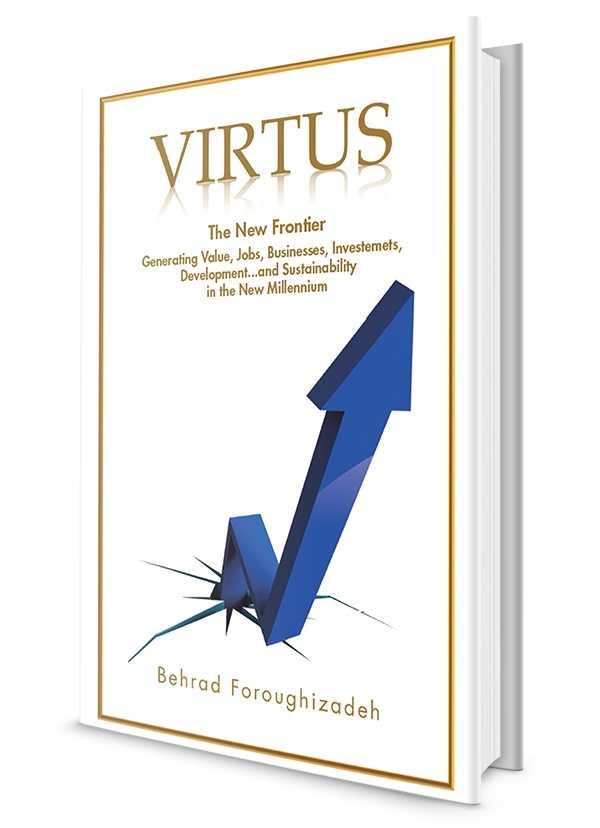Virtus
The Next Frontier
The excellent research and the superior quality of the writing make Virtus an exceptional argument for change.
Virtus by Behrad Foroughizadeh is an expansive, visionary treatise that proposes a new global economic system.
Foroughizadeh flexes his experience at major consulting firms in a volume that has far-reaching implications. His ambitious goal in Virtus is to define and describe “a new and evolved economic model that is ideologically free.” Foroughizadeh offers a remarkable, thorough, and convincing argument for an entirely different kind of economic system.
The first part of the book is a wise and observant discussion of the manner in which current technologies—in particular, the convergence of mobile and the Internet—have created a new environment that challenges the world’s economy. The author does an admirable job of covering major changes in technology, in addition to twenty-first-century business challenges and the emergence of new economic powerhouse nations, most notably China. Foroughizadeh concludes that current economic models are outdated; he believes, in fact, that looking at the problem in an entirely different way could present “a series of opportunities.”
Foroughizadeh then presents his “possible solution,” which he labels “Virtus,” a word chosen because it both relates to “moral virtue” and “in its basic sense means ‘excellence of any kind.’” The author points out that the impact of “disruptive technology,” along with other challenges, including climate change, globalization, and “environmental destruction,” is pervasive and will affect everyone, and he asks what this implies “in terms of jobs, entire businesses, investments, and wealth.”
The structure of this part of the book is important; ample evidence is offered to support an evolutionary approach to adopting a new value-based model. Foroughizadeh walks through the aspects a solution might need to address and demonstrates, in text and diagrams, how a new, evolutionary “economic plateau” is achievable.
Such discussions are highly conceptual and rich with advanced economic thinking that may be challenging for some readers. Still, it is a sound, well-organized, and eloquently written section that includes several excellent examples, a summary of the Virtus “key principles,” and an executive summary of the entire book, though that summary might have been more appropriate closer to the conclusion.
The third portion of the volume should allay the fears of any who are skeptical that a new economic model is practical. Foroughizadeh offers nineteen concrete, concise examples that demonstrate how the Virtus approach would apply in an almost mind-boggling array of different scenarios, including “Next Gen Cities & Infrastructure,” “Next Gen Healthcare and Medicine,” and “Terra Curing / Healing.”
Whether or not one fully embraces the vision of the author, it is difficult not to finish reading Virtus without feeling somewhat awestruck. The thought that went into this book, the excellent research, and the superior quality of the writing all make Virtus an exceptional argument for change.
Reviewed by
Barry Silverstein
Disclosure: This article is not an endorsement, but a review. The publisher of this book provided free copies of the book and paid a small fee to have their book reviewed by a professional reviewer. Foreword Reviews and Clarion Reviews make no guarantee that the publisher will receive a positive review. Foreword Magazine, Inc. is disclosing this in accordance with the Federal Trade Commission’s 16 CFR, Part 255.

